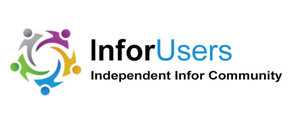The Problem: Elder Care is Becoming a Healthcare Focus for Boomer Populations
The Boomer generation continues to age (e.g., born 1946 – 1964), and all will be 65 years of age or older by 2030. This will drive an increased need for caregiver and health services that will strain our healthcare system and economies. As US healthcare continue to move toward patient-focused healthcare, the need to provide timely, cost-effective, and high-quality care to our aging citizens becomes a key strategic success factor for provider and payers. Digital technology solutions for supporting virtual healthcare received their trial by fire in the COVID-19 pandemic. Providers gained valuable experiences and knowledge of technologies that will support virtual care. Telemedicine was at the forefront of these experiences, but several digital solutions evolved to improve patient engagement for scheduling services, paying bills, collaborating with population health and clinical professionals, and providing a higher level of patient education. The adoption of smart devices such as smartphones, tablets, and home assistants (e.g., Google Home and Amazon Echo), will drive consumer expectations to use these devices to further enhance their healthcare experiences.
Value-based care will drive increased competition between provider networks. As the population ages, the ability to deliver care that is not only high-quality but convenient will upset healthcare markets that have traditionally been focused on capturing lucrative healthcare services supported by fee for service delivery models. Providers that are creating and implementing strategies to better serve the aging population at their residences will likely become market leaders.
The Solution: Amazon Becomes More Aggressive with Home Assistant Solutions Supporting Elders
Amazon has announced Alexa Smart Properties that will enable senior living and healthcare providers to integrate Alexa into their properties and empower residents and patients to stay connected, informed and entertained. Alexa Smart Properties offers customized Alexa experiences for residents and patients, that increase care team productivity and operational efficiency. Alexa Smart Properties enables senior living residents to keep in touch with their loved ones, and their community using the Amazon Echo device in their room. Administrators can tailor resident experiences by customizing community information like activity schedules and meal menus. Care team members can communicate more efficiently with residents which enable them to make Announcements, voice and video calls, or send direct audio messages to other Alexa-enabled devices throughout the property. Alexa can also help communities streamline activities like check-ins, field requests for maintenance, and administrative tasks—enabling associates to save time and increase productivity. Alexa Smart Properties has been adopted by Atria and Eskaton Senior Living facilities.
A second Alexa offering is called Alexa Together. This solution provides digital support for your loved ones. Family and friends can track their loved ones and increase effective communications using the Echo device and a monthly subscription which keeps everyone connected. Alexa Together includes activity alerts and an activity feed, so you can get an idea of what your loved one is doing with just a quick look at your phone. It keeps you in the loop and keeps them independent while they age at home.
The Justification Voice Recognition – A Key Technology Supporting Aging in Place
As stated in previous articles (e.g., Voice and AI Advances Improve Elder Care, and Smart Speakers Becoming Healthcare Monitors) smart home devices are being designed by Amazon and Google to become healthcare assistants. This focus will enable our elderly population to have a viable solution to age in place, which should also reduce the cost of delivering healthcare over time. As smart devices become more sophisticated, they will integrate with remote patient monitoring devices and clinical decision support applications to deliver solutions that best support elderly and high-risk populations while reducing clinician overhead. The population of patients that will use smart home assistants are likely the best insured which will help reduce the financial risk for these services.
The Players: Amazon, Google, and Apple Are Smart Home Assistants to Watch
Amazon, Google, and Apple all have voice recognition solutions that are proven and continue to improve the smart home assistant solutions. Google with Fitbit, and Apple with the Apple Watch will likely extend healthcare services on their respective smart home assistants by integrating healthcare data into these services. The ability for family and caregivers to interact with these devices provides peace of mind.
Success Factors:
- Healthcare providers should begin to create strategies for using smart home assistants to support their ability to support home care and acute care at home.
- Provider innovation centers should be used to assess early healthcare capabilities using these devices and the remote patient monitoring capabilities that are supported.
- Providers that have long term care facilities should evaluate the smart home assistant solutions with those controlled patient populations.
Summary:
Smart home assistants and their voice recognition capabilities are positioned to enable improved virtual home care. Large technology companies such as Amazon, Apple, and Google are well positioned to drive increasingly improved solutions through robust competition. The addition of artificial intelligence into these solutions will further improve the care management and assessment capabilities of these smart devices. Integrating the smart watches/fitness trackers into these environments will provide additional healthcare data that will drive lower cost healthcare. Smartphones will also continue to generate and support healthcare applications that improve healthcare monitoring and management and that can also be integrated with the smart home assistants.
The ability to improve caregiver and family communications and healthcare monitoring for the elderly at home, in senior living facilities, or in long term care facilities will become a required care delivery capability as we move to patient focused value-based care. Providers and payers who do not prepare for this eventuality will struggle to remain viable.
Photo Credit: Insta_photos, Adobe Stock


